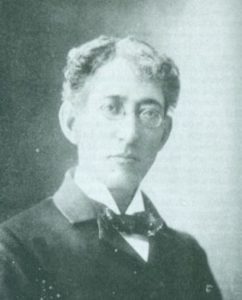
Timothy Fortune
*Timothy Fortune was born on this date in 1856. He was a Black journalist and civil rights activist.
He was born a slave in Marianna, Florida, to his father and mother, Emanuel and Sarah. Timothy Thomas Fortune and his family were forced to leave home because of dissent after the Emancipation. Moving to Jacksonville, young Fortune became a compositor at a local newspaper. In 1874, he enrolled at Howard University, having to drop out for financial reasons and get work for a Black weekly newspaper. He returned to Florida after getting married and worked for several newspapers in the area. In 1878, he married Carolyne Carrie Smiley.
The racism there again forced him to relocate to New York City in 1881, where he found work at the Globe. At this time, he wrote a politically motivated book, Black and White: Land, Labor, and Politics in the South (1884). Fortune was a key figure in the Afro-American League (AAL), an early vehicle for civil rights agitation that lasted until 1893. While working for the New York Age newspaper, he offered Ida B. Wells work after a white mob destroyed her Memphis Newspaper. It was here where her stunning expose of lynching was published.
In 1898, Fortune himself toured the South and reported the worsening conditions of Jim Crow Laws and entrenched racism, and it was at this time that he solidified his friendship with Booker T. Washington. Fortune not only publicized Tuskegee Institute in the Age but also used his literary skills to polish and promote Washington’s views, including his The Future of the American Negro (1898). In 1900, several issues arose in and around Fortune’s career. He served as chairman of the National Negro Business League (NNBL) but could not move into the political arena he desired. This was mainly because of Washington‘s power and need to keep Fortune as an “independent” journalist.
Opinions from William Trotter in his publication in the Boston Guardian about the money from Tuskegee supporting too much of the Age did not help. Additionally, in 1907, Washington’s secret takeover of the Age eventually led to Fortune's nervous breakdown. 1914, with the Age deteriorating, Washington lured Fortune back, where he remained for three years. He then moved on to journalism to write for papers in Philadelphia, Indianapolis, Washington D. C., and elsewhere. He was able to regain much self-respect in the 1920s.
He became editor of Marcus Garvey’s the Negro World in 1923. Timothy Fortune was considered a major spokesman for Black America before Washington’s ascent into prominence. He edited The World until his death in June 1928.